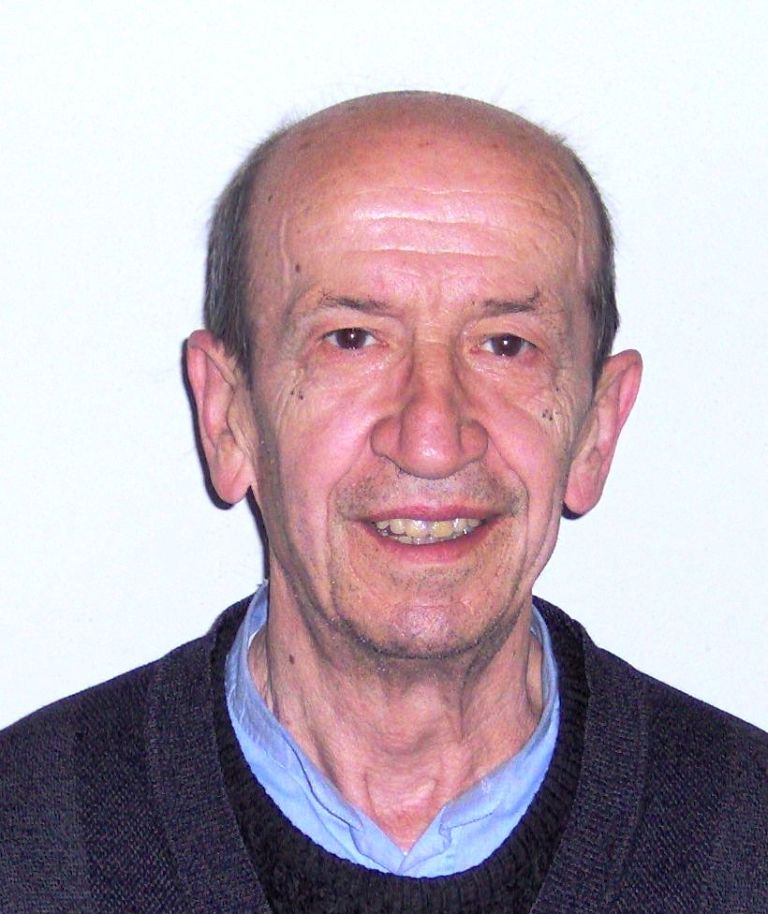Daniel Comboni
Comboni Missionaries
Institutional area
Other links
Newsletter
In Pace Christi
Foini Franco
“Fr. Franco knew how to give the best of himself to mission promotion: he had the soul of an artist”, said Fr. Lino Spezia during the funeral at our house in Milan.
Fr. Franco Foini was born at Breno, in the Province of Brescia, on 4 October, 1934. Having completed middle school at the Comboni seminary of Crema and first year of high school at Brescia, he joined the novitiate at Gozzano where, in 1953, he took first vows. He began his theological studies at Verona and completed them at Venegono. He was ordained on 18 March, 1961. He then spent two years at Brescia as vocations promoter and in mission promotion, an apostolate in which he was outstanding and remained the characteristic of his missionary ministry both in Brazil, among the youth, and in Italy.
In 1963 he was appointed to Brasile Sud, first to Nova Venécia and then to São Mateus, both in the State of Espírito Santo. Fr. Pietro Bracelli wrote: “Fr. Franco wanted to be a driving force in youth ministry, inspired in part by the new spirit of the Second Vatican Council. Of course there were reactions – at first and also later, due to the different circumstance and mentalities”. In an interview with Nigrizia in December, 1967, Fr. Franco said that it was necessary to raise up the movement of young Catholics, authentic individuals committed in and to the Christian, civic and religious community. He added that his young people, motivated in this way, “built houses for the poor, organised fund-raising events and tackled religious and personal problems in open dialogue”.
Fr. Franco returned to Italy somewhat wounded by these conflicts. It was a tough experience, in some ways, but, with the passing of years, he succeeded in reinterpreting them in a positive way. Again, Fr. Bracelli wrote: “His sufferings did not destroy the man but helped him to face life convinced of his ability to overcome such difficulties”.
In 1967, he was assigned to the Italian Province where he spent the rest of his life (42 years).
He specialised in spirituality which he studied in Rome for two years, he carried out his ministry especially in Brescia (for three periods of a total of fourteen years), at Thiene (twenty-one years) and in Milan (five years). Fr. Lino Spezia remarked: “I think Thiene was the best period of his life. He found a welcome and friendship and Fr. Franco managed to give of his best in mission promotion – he had the soul of an artist. By means of his creativity, his imagination, his ability to invent new phrases and catchy slogans, his knack of finding catchphrases that were appropriate and effective to remind people to take part in vigils and prayer meetings. At Brescia, too, he involved experts and professional people because, in his view, mission promotion meant combining life with the Gospel and vice versa, in order to be true witnesses, dedicated and committed in society”.
Fr. Lino also underlined some of the positive traits of Fr. Franco during the years he spent in Milan: his willingness to listen to people and his encouragement in times of trouble; the way he welcome the relatives and friends of the missionaries of the house; his reading of various authors who were or still are ‘prophetic voices’ of our times and which he afterwards passed on, making his own their intuitions and reflections; the special place he reserved for Our Lady both in his homilies, in personal meetings or on the telephone when someone was in difficulty.
Fr. Franco died in Milan on 20 January, 2012. After the celebration in our house in Milan, the remains were taken to his native home in Breno where the parish priest, Don Francesco Corbelli, recalled “his incomparable ability to attract the attention of the youth and adults, children and grandparents, with a style that was enthusiastic, communicative and fluent in announcing the Gospel of the Lord. The testimony he left us shortly before his priestly jubilee also conveyed what was always his passion; he wrote ‘At last I understand that the mission is not only departing but also being a witness where one happens to be’”.
Fr. Franco was buried in the cemetery of Breno in the land of his parents and the priests who helped him to grown and accompanied him along the way.

